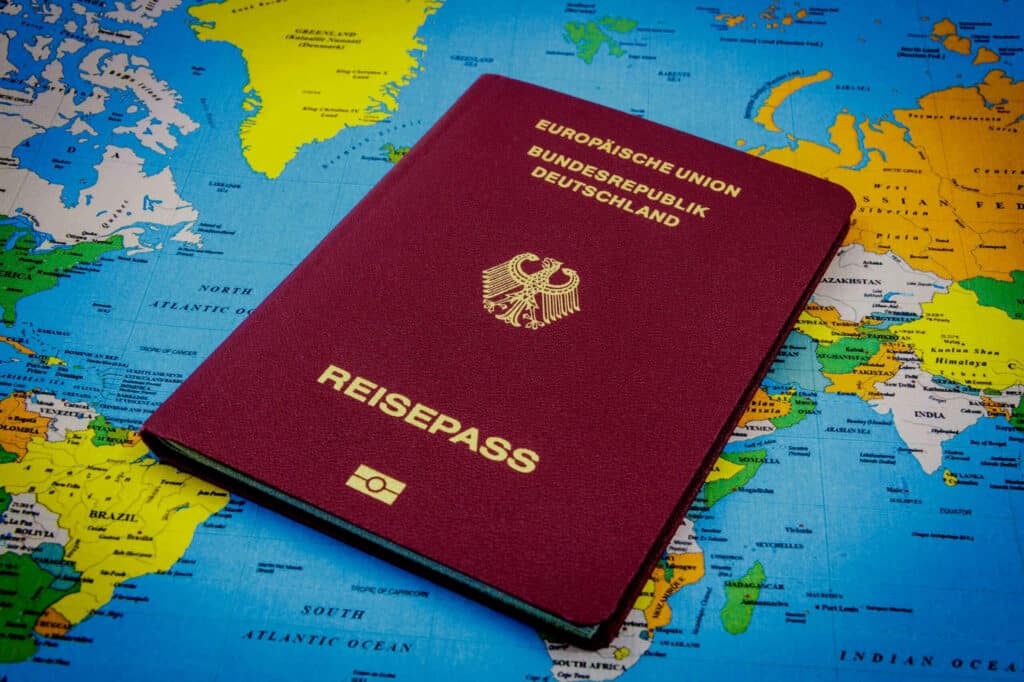Foreign nationals cannot directly obtain Germany residency by investment. But there is an immigration pathway that works somehow the same way. Find out more in this article.
If you want to invest as an expat or high-net-worth individual, which is what i specialize in, you can email me (advice@adamfayed.com) or use WhatsApp (+44-7393-450-837).
Introduction
Living in Germany is sought after by many people. This comes as no surprise because the quality of life in the country is consistently among one of the highest in the world. Once you become a resident or even a citizen, you will have access to many opportunities for education, employment, recreation, travel, and government support.
Is it possible to obtain Germany residency by investment?
Germany does not issue a Golden Visa. Because of this, there is no direct immigration program that will entitle applicants to Germany residency by investment. However, this does not mean that getting Germany residency by investment is completely impossible. This can still be done by starting a business in the country.
In general, individuals can apply for a self-employment visa to obtain a temporary residence permit in Germany. This can be a stepping stone to eventual permanent residency and citizenship in the country.
What is the self-employment visa in Germany?
The self-employment visa in Germany is intended for foreign nationals who want to start a business or conduct freelance work in the country.
Business people (Gewerbetreibende) refer to individuals who participate in self-employed activities that generate income. This includes, but is not limited to, traders, caterers, craftspeople, or producers of goods.

Freelancers refer to individuals who work in “liberal professions” (Freie Berufe), which include the following:
- Healthcare professions: doctors, dentists, vets, non-medical practitioners, physiotherapists
- Legal, tax and business advisory professions: attorneys, patent attorneys, notaries, accountants, tax consultants or business consultants
- Scientific/technical professions: surveyors, engineers, architects
- Linguistic and information-transmitting professions: journalists, image-based reporters, interpreters, translators
Will I need to apply for a self-employment visa to work in Germany?
If you are a citizen of the European Union, Liechtenstein, Iceland, Norway, or Switzerland, then you will not need to apply for a self-employment visa or a residence permit. You can travel to Germany with only a valid identity card or its equivalent. At the same time, you can stay in the country for three months. But, as a self-employed individual, you are entitled to free movement. This means that, in most cases, you can live in Germany even beyond the 3-month duration.
If you are a citizen of another country not mentioned above, then you will have to apply for a self-employment visa.
What are the requirements to apply for a self-employment visa in Germany?
For applicants who intend to set up a business in Germany, they must create a business plan that meets the following conditions:
- It fulfills an economic interest or regional need
- It will bring positive effects to the economy
- It must be adequately financed through equity capital or a loan commitment
The business idea will be evaluated against the following factors: viability; your entrepreneurial experience; amount of capital investment; effects on employment in the country; and benefit to innovation and research. This will be conducted by competent bodies and authorities relevant to the location and industry in which the business will operate.
For the applicants themselves, the following conditions must be fulfilled:
- If you, as the applicant, are over the age of 45, then you need to provide proof that you have enough pension to support yourself.
- You must have no records that indicate any reason for expulsion from the country.
- You must have adequate health insurance coverage before you depart for Germany.

For freelancers, the following criteria must be met:
- You must show proof of adequate financial resources to fund your projects.
- You must have attained the relevant licenses to practice the profession in which you’ll engage.
- If you are over the age of 45, then you must show proof of a sufficient pension.
- You must have no records showing any reason for expulsion.
- You must have adequate health insurance coverage.
What documents do I need to apply for a self-employment visa in Germany?
You must prepare the original and two copies of the following documents:
- Two completely filled out visa application forms
- Completely filled out online application form
- Valid passport
- 2 recent passport-size photographs, which should not have been taken more than 3 months prior
- Proof of health insurance
- Proof of accomodation or rental agreement
- Company profile
- Motivation letter written in German
- Detailed business plan written in German
- Information about the number of jobs created through the proposed business
- Proof of financial investment, which includes bank statements within the past 3 months
- Forecast of revenue for at least 3 years
- Curriculum vitae
- Degree certificate
- Adequate pension plan
For applicants who are more than 45 years old, they must additionally submit a document obtained from the private pension insurer. This should state that the insurer will provide 1,280.06 euros worth of pension per month for a minimum period of 12 years after the applicant turns 67 years of age. Alternatively, evidence showing an asset amounting to 187,682 euros can be submitted.
There are some nationalities that are exempted from providing proof of a pension plan. This is applicable to applicants who are citizens of the following countries: Dominican Republic, Indonesia, Iran, Japan, Philippines, Sri Lanka, Turkey and the United States of America.
How much do I need to invest to set up a business in Germany?
There is no required minimum investment amount to obtain a self-employment visa in Germany. However, it is recommended to invest a minimum amount of EUR 360,000 to set up a business in the country.
How do I apply for a self-employment visa for Germany?
Application for a self-employment visa can be done by making an appointment at the German embassy in your country of residence. During your scheduled appointment, make sure to bring the required documents mentioned above.
How much does it cost to apply for a self-employment visa in Germany?
The processing fee for a German self-employment visa costs EUR 75.00, or its equivalent in your local currency.
How long is the processing time for a self-employment visa in Germany?
It usually takes four to six months for a decision to be made regarding your visa application.
How will I get my temporary residence permit in Germany as a self-employed person?
When you have been successfully approved for a self-employment visa, you can finally travel to Germany. Upon arrival in the country, you must schedule an appointment with the foreigners’ authority to apply for a temporary residence permit for self-employment. This can cost up to EUR 100. You must apply for a residence permit before your self-employment visa expires.
How long is the temporary residence permit for self-employment in Germany valid?
The temporary residence permit in Germany is valid for a maximum period of 3 years.
Can I become a permanent resident in Germany by investment?
You can apply for a German permanent residence permit after the validity period of the temporary residence permit for self-employment expires. This comes with the condition that the planned business activity has been successfully actualized and that you have resided in the country for 3 consecutive years. At the same time, you must provide proof that you have adequate financial resources to support yourself and your dependents.
Can I become a German citizen by investment?
If you have lived in Germany for 6 to 8 uninterrupted years, then you can apply for German citizenship by naturalization.

Things to take note of as a self-employed individual in Germany
If you are working as a business person in Germany, the first step that you must take is to register your business. This will allow you to conduct operations in line with the law. However, it is important to note that some activities are subject to authorization and approval. This includes establishing a driving school and the production of pharmaceuticals, to name a few. At the same time, you must also show proof of qualification or license for specific types of trade. In general, the process will be as follows:
- Contact the Chamber of Industry and Commerce (Industrie-und Handelskammer) or the Chamber of Skilled Crafts (Handwerkskammer). Doing so will help you determine whether a permit, license, or an exam is required for the type of trade that you want to engage in.
- Register in the Trades Register or in the Chamber of Skilled Crafts. This is applicable to business activities in the skilled-craft or similar sectors.
- Register your business at the Trade Office in the city where you will establish it.
- Obtain membership in the Chamber of Industry and Commerce or the Chamber of Skilled Crafts. This is required.
Though coming up with a business plan requires much effort and expertise, applicants are not left on their own. There are different institutions that offer advisory services to help entrepreneurs on this journey.
If you are working as a freelancer, you must register with the Tax Office to get your tax number. Some professions will require you to obtain membership in relevant chambers. At the same time, qualifications obtained from a country outside Germany must meet certain requirements to be considered valid.
Conclusion
Though there may not be a direct pathway to Germany residency by investment, foreign nationals still have the option of setting up a business in the country. With a strong and stable political and economic environment, doing so might just offer high returns for the risk you’ll take.
Pained by financial indecision? Want to invest with Adam?

Adam is an internationally recognised author on financial matters with over 830million answer views on Quora, a widely sold book on Amazon, and a contributor on Forbes.



